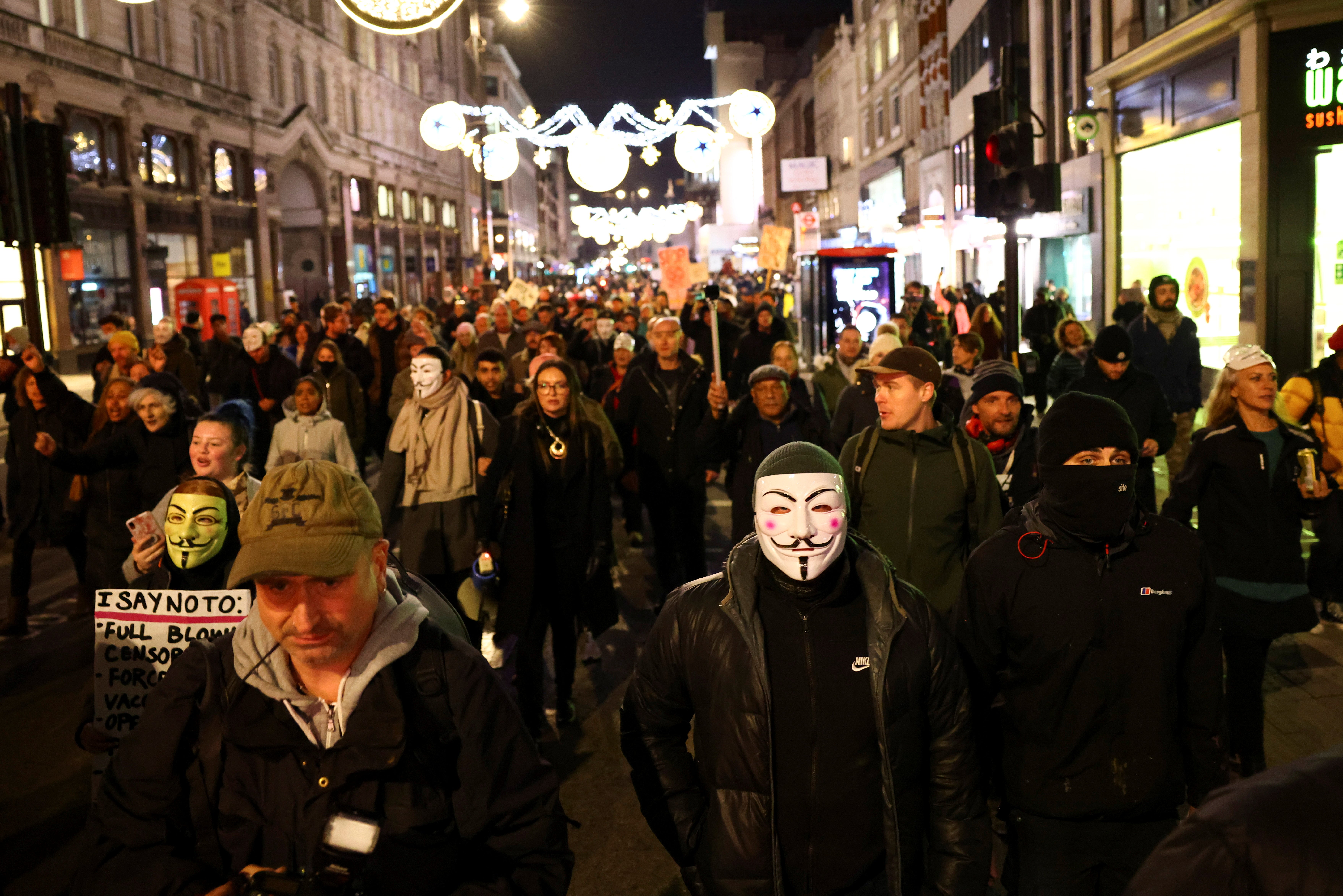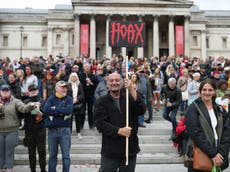Coronavirus: Met police spend £1 million on anti-mask protesters
Anti-mask protests have taken place across the country, including in Bristol, Manchester, and Liverpool, meaning total cost to taxpayer is likely higher

Protests in London promoting anti-mask coronavirus conspiracy theories have cost the taxpayer more than £1m in policing costs from March to October 2020, new FOI data show.
A major coronavirus conspiracy protest held in Hyde Park in May, in which 20 arrests were made, cost the Met Police almost £100,000 in policing alone, another request shows.
One hundred and ninety arrests were made at the ‘Million Mask March’ in London’s Hyde Park on the first night of the second national lockdown.
Anti-mask protests have also taken place across the country, including in Bristol, Manchester, and Liverpool, meaning that the total cost to the taxpayer is likely higher.
Andrew Pattison, a digital business solutions manager at WHO, described the spread of false information as an "infodemic" that was "spreading faster than the virus", and new data shows that 32 per cent of us are seeing fake or misleading information about the virus each week.
Conspiracy theories about the virus are wide ranging, with some suggesting that 5G signals cause the virus, others stating it is manmade for population management, or that it is created by ‘government elites’. Many of these theories also reject the use of a potential vaccine to quell the spread of Covid-19.
Carl Miller, research director of the Centre for the Analysis of Social Media at think tank Demos, said while these costs of policing anti-mask protests were considerable, this could be just a drop in the ocean compared to what could happen if a wide reach of these conspiracies leads to reduced uptake of a vaccine.
“These anti-mask conspiracy theories do not stand alone, they are part of an ecosystem of beliefs that include anti-vaccination views, and conspiracies that big pharma companies introduced Covid-19 to profit from the vaccine,” he said.
He expressed concern that a wide spread of these conspiracy theories could mean people try and stop their friends, family and children from taking a covid vaccine, potentially slowing a return to normal life.
A spokesperson for the Met said it would continue to engage positively with event organisers but that a failure to do so could result in enforcement action being taken by officers.
A government spokesperson has said: "Our specialist units across Government tackle a range of harmful narratives online and up to 70 incidents a week have been identified and resolved — from false public health advice to criminal fraudsters running phishing scams.”



Join our commenting forum
Join thought-provoking conversations, follow other Independent readers and see their replies
Comments